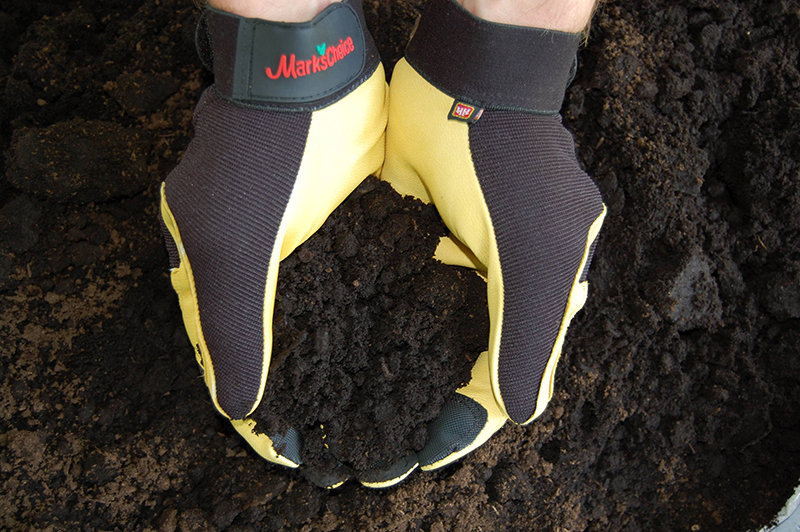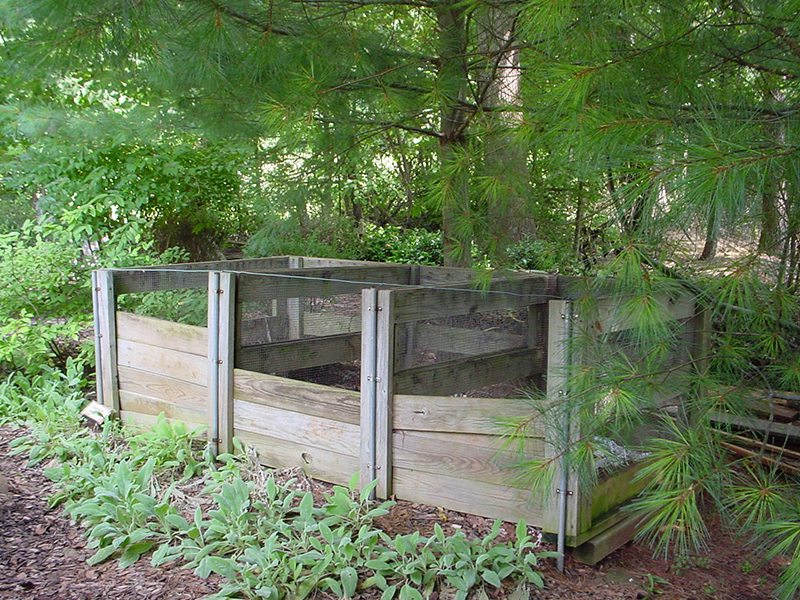Composing Compost for the Perfect Garden
By Mark and Ben Cullen
https://www.instagram.com/markcullengardening/
https://www.facebook.com/MarkCullenGardening/
This is a perfect time to reawaken your commitment to save the planet and the green world on it. Convert the raw, organic material from the kitchen and the garden into the magic elixir that feeds the earth and all plant life that relies on it for sustenance. Compost.

Here is what we recommend:
1. We throw out up to 50% of our compostable materials. According to Susan Antler, executive director of the Composting Council of Canada, we generally are not very good at composting the organics from our kitchen and yard. “Whether at home in the backyard composter or through green bin composting programs, those banana peels (no stickers please), apple cores, fallen leaves and garden trimmings can be recycled.” Antler says that 61% of Canadians have access to some form of composting and that many of us do not take full advantage of it.
2. We do compost, but we could do better! 45% of households reported composting kitchen waste; 68% of Canadian households recycle garden waste. The big challenge is implementing broad based programs in ‘multi family dwellings (apartments and condos) where recycling rates are much lower than single family dwellings.
3. What happens when you put a banana peel in the garbage (landfill)? The anaerobic decomposition of organic waste in landfills produces a gas which is composed primarily of methane, a greenhouse gas contribution to climate change. Methane is 21 times more potent than carbon dioxide in terms of its global warming potential. The aerobic composting in your yard does not do this, if it is managed properly
4. Organics = soil health. Make no mistake: 90% of the success you achieve in your garden is the direct result of proper soil enhancement and natural fertility. The concept of ‘soil health’ begins with knowing that soils are living ecosystems. Susan Antler reminds us that, “A handful of healthy soil contains more living organisms than there are people on the planet.” When we add finished compost to our soil we enhance the life-giving bacteria, fungi, protozoa, nematodes and other more visible creatures such as earthworms. A 2cm to 3cm layer of compost over your garden soil this time of year is just a stupendously good idea.
5. The Environmental Commissioners report (Canada) states that, (healthy soil) “is like Times Square on (a normal) New Year’s Eve, all of the time.” In other words, the activity below the surface of your lawn and garden is immeasurably active and alive, especially when it is healthy. What is healthy soil? It is soil that makes nutrients available to plants in a variety of unique and effective ways. It builds and enhances soil aggregation and porosity, sequesters nitrogen and other nutrients, reducing nutrient loss to pollution, it out-competes disease and pest organisms, enhancing crops yields (and blooms!).
In short, composting and adding quality compost to your garden is the ultimate Carbon Trading Scheme as plants use photosynthesis to fix carbon in an organic form from carbon dioxide in the atmosphere. And no money flows through bureaucratic government sponsored hands.

Composting in your yard? What you need to know:
Brown stuff/Green stuff. The green organic material that you add to your compost bin or pile is nitrogen rich. The brown stuff (fallen leaves, shredded newspaper) is carbon rich. Ideally you should put one part ‘green’ into your compost for every 5 to 10 parts ‘brown’. This will help to prevent your compost from smelling bad (becoming anaerobic, or, “without oxygen”).
Turn it. Oxygen is your friend. Like starting a fire by blowing on it, you will ignite the decomposition process in your bin or compost pile when you turn it over with a garden fork every few weeks. It is ok if you don’t do this, but you will wait much longer for results.
What is a visible marker that your soil is healthy? Earth worms. The more the better. Odette Menard works for the Quebec Ministry of Agriculture, Fisheries and Food. She is an esteemed member of the Soil Conservation Council of Canada (yes, there is such a thing in Canada) and she is an authority on earthworms. “Earthworms stabilize the soil by digesting it and combining it with organic matter which leaves it less vulnerable to erosion. They create a lot of space for roots and air, helping to provide an ideal environment for microorganisms to grow.”
For more details go to Compost Council of Canada or explore our library at www.markcullen.com Use the keyword “compost” to search for more articles on the subject.



